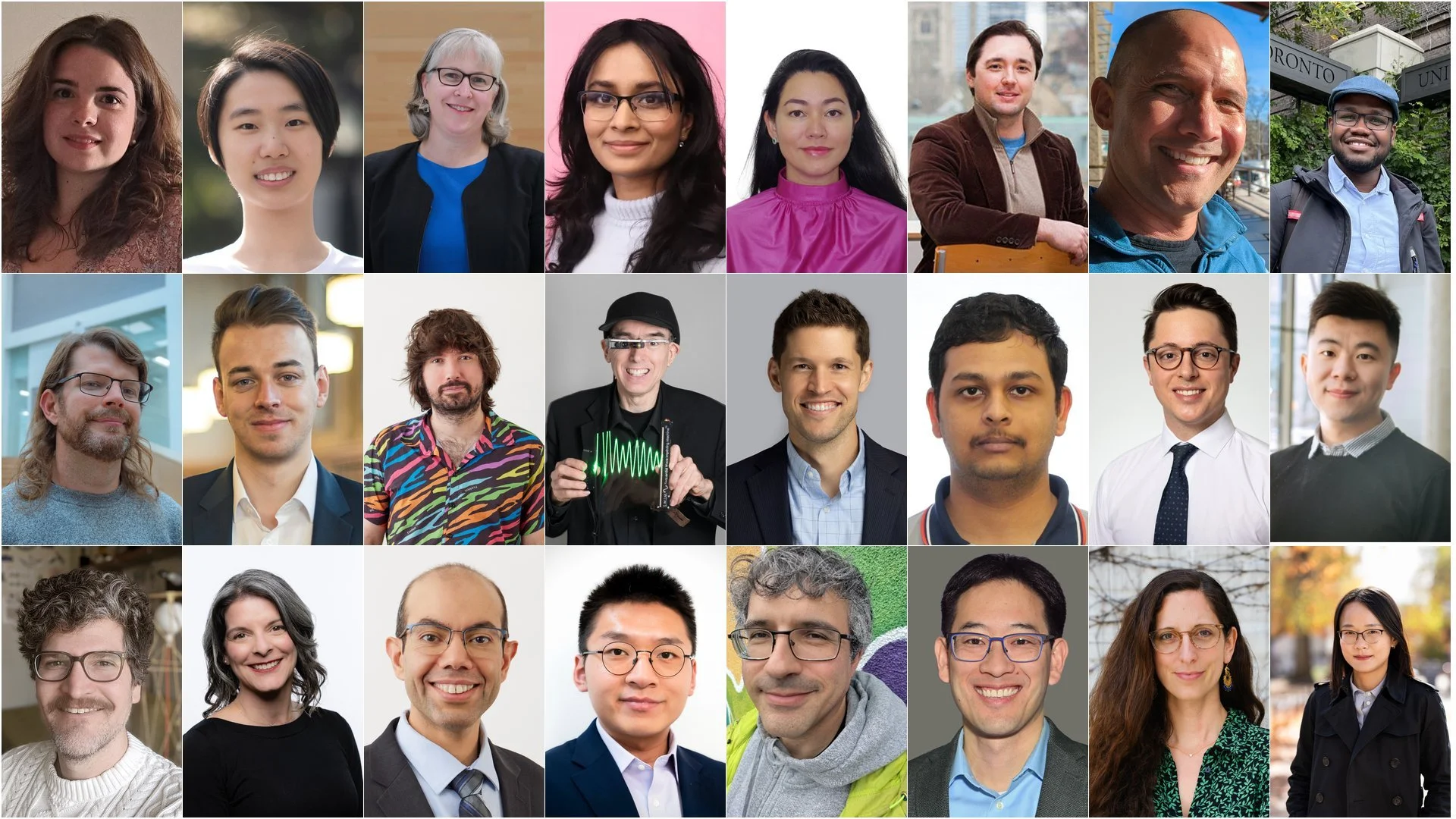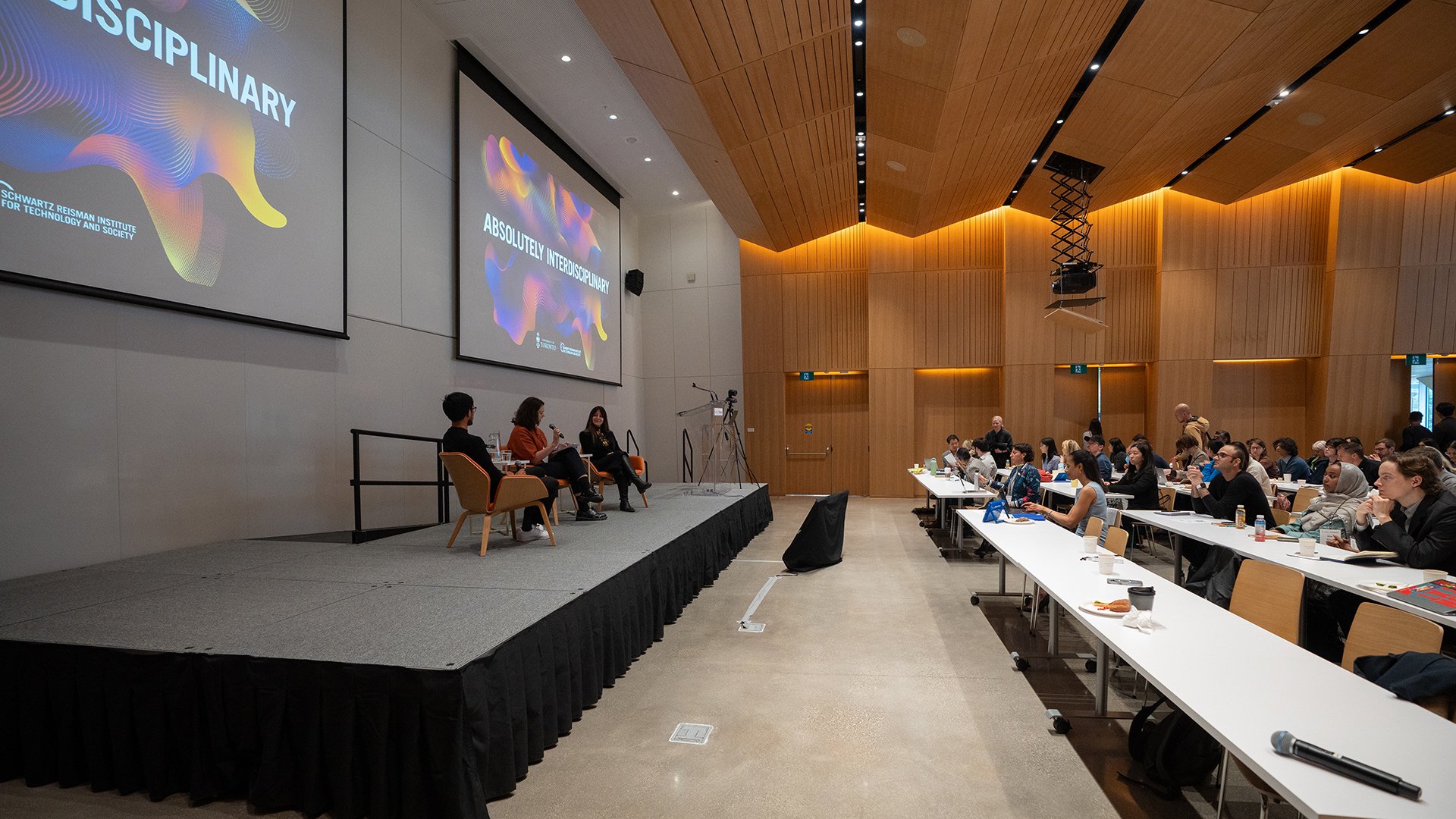Nisarg Shah named one of “AI’s 10 To Watch” for innovative work in computational social choice
Schwartz Reisman Faculty Affiliate and Fellow Nisarg Shah has been named one of ten outstanding young scholars to watch in the field of artificial intelligence by IEEE Intelligent Systems.
Schwartz Reisman Institute Faculty Affiliate and Fellow Nisarg Shah has been named one of ten outstanding young scholars to watch in the field of artificial intelligence by IEEE Intelligent Systems, the world’s largest professional organization for the advancement of technology.
The selection committee, composed of IEEE editorial and advisory board members, drew from a worldwide pool of nominees who obtained doctorates since 2014 and demonstrate continued excellence in AI research. The committee noted Shah’s work provides “seminal contributions to computational social choice” through “the perfect blend of mathematical theory and practical applications.”
Situated at the intersection of AI and economics, Shah’s research on computational social choice—a field that uses computational methods to analyze and improve how groups of people make decisions—examines the theoretical foundations of fairness in algorithmic decision-making.
Among his key projects are RoboVote.org and Spliddit.org, two not-for profit online platforms that have been employed by more than 200,000 users worldwide to date. The sites provide easy access to voting and fair division methods for everyday tasks, such as splitting rent or chores between roommates. These tools guarantee fairness through their transparent use of formal proofs, and the algorithms they employ have been refined over time through user feedback. As Shah explains, while it may be challenging for non-specialists to understand how the algorithms work, it is easy to understand why their outcomes are fair.
“Voting is much older than all of computer science, and even some of the mathematical sciences. Yet somehow, after all these centuries, there is still so much to do in voting theory.”
Shah notes that while voting practices have existed for centuries, their foundations remain surprisingly underdeveloped.
“Voting is much older than all of computer science, and even some of the mathematical sciences,” says Shah. “Yet somehow, after all these centuries, there is still so much to do in voting theory because much of the research has been limited to stylistic mathematical scenarios, whereas many complex, real-world phenomena—such as primaries or political redistricting [also known as gerrymandering]—have rarely been modeled or looked at formally. So that's something I'm actively working on.”
Given the current polarization of online discourse, Shah’s commitment towards the development of cooperative platforms based in principles of fairness and democratic ideals is a refreshing example of how computational social choice can address AI’s value alignment problem. As he observes, “algorithms can be a force for good, and actually help address some of our societal challenges.”
Shah’s current research seeks to develop an overarching theory of fair algorithmic decision making that will unify disparate notions of fairness across a wide range of applications.
Nisarg Shah
“It’s very hard to come up with one regulatory framework that applies to every domain at the same time,” Shah observes. “In the existing literature on machine learning, there are many definitions of fairness, which makes it difficult for the industry to figure out how to really make their algorithms fair. If we find a framework that applies to all domains, it would make things easier for practitioners, because they won't have to go looking for different definitions, they will just have to find the right way to apply the unified definition in that particular context.”
Shah obtained his PhD in Computer Science from Carnegie Mellon University in 2016 and joined the Department of Computer Science at the University of Toronto in 2017 after completing a postdoc at Harvard. In addition to his affiliation with Schwartz Reisman, he’s also a faculty affiliate at the Vector Institute for Artificial Intelligence.
Through his Schwartz Reisman faculty fellowship, Shah is currently engaged in designing algorithms for participatory budgeting, expanding the potential utility of his innovations towards direct involvement in policy decision-making processes. Shah notes that his engagement with the Institute’s research community has also led to new potential collaborations, as well as recurring thought-provoking encounters through the weekly seminars. “What I find most fascinating is the confluence of researchers from vastly different disciplines,” Shah explains. “Talking to them always opens my mind to novel viewpoints.”
Shah notes that the development of certification protocols for ethical standards and fairness in AI will require organizations such as the Schwartz Reisman Institute to play an essential role. This sort of high-level initiative, while overly ambitious for individual researchers, could be led by institutions such as SRI who are able to engage a wide spectrum of stakeholders in conversations around what it means to be ethical, how the design of ethical algorithms should work, and how to develop concrete frameworks for policy and governance that others can follow. As Shah observes, this would be a revolutionary shift for the development of fair algorithms, and something to watch for on the future horizon of AI research.
Want to learn more?
Watch Nisarg Shah’s SRI Seminar, “Fairness in algorithmic decision-making: theory and applications” (Nov. 4, 2020).
Watch Shah’s COMSOC presentation, “Resolving the Optimal Metric Distortion Conjecture” (June 5, 2020).
Read Shah’s paper, “Resolving the Optimal Metric Distortion Conjecture” (2020).









